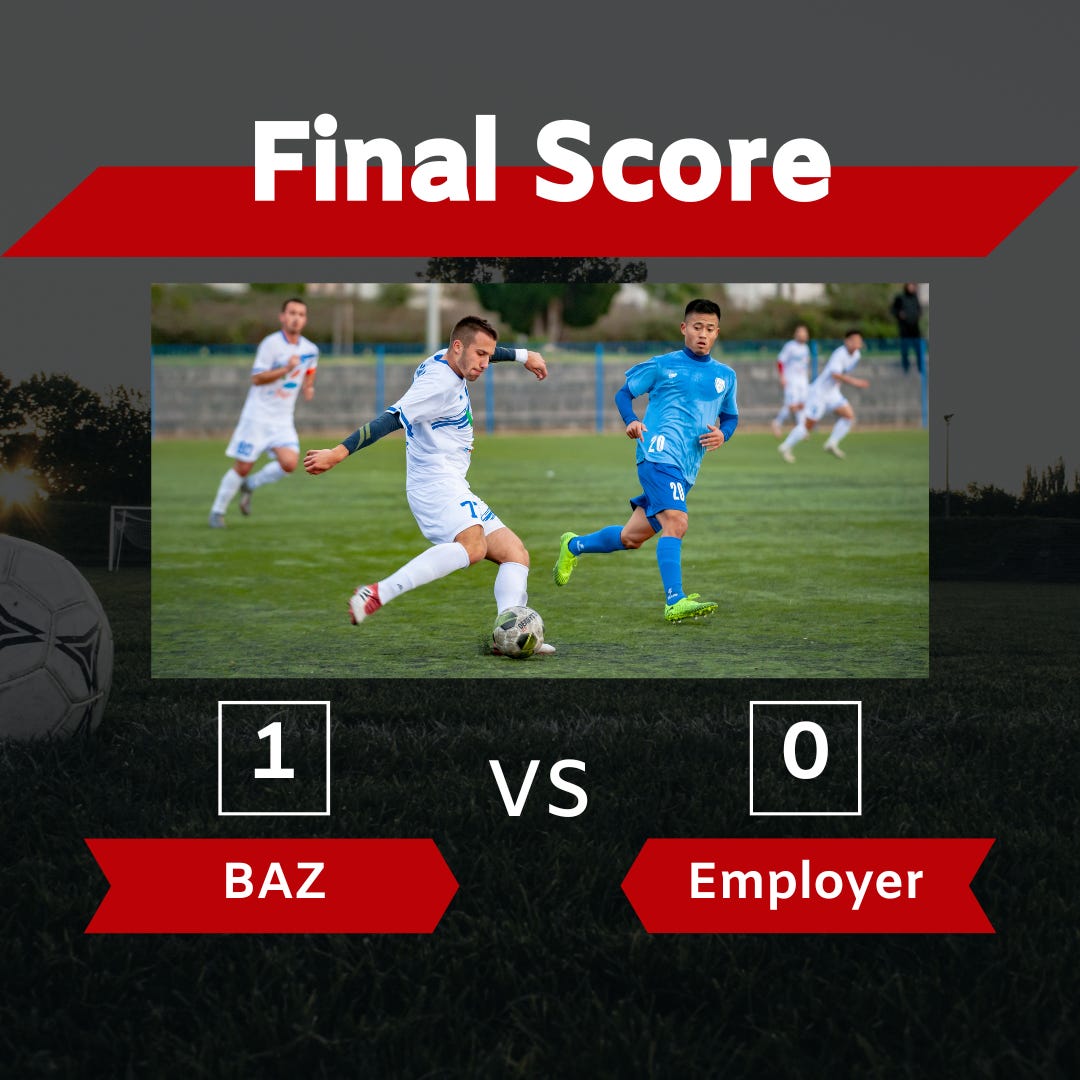Getting Fired at 65, Part 2 - The Threat of Legal Action Was Too Much for Them
THEY SAW THE ERROR OF THEIR WAYS ... BUT MORE LIKELY, THE POTENTIAL LIABILITY THEY CREATED

I closed Part 1 by mentioning my unwillingness to leave quietly, as my former employer hoped I would. In the intervening time, and after speaking with some trusted friends, I was convinced that my layoff wasn’t a layoff at all.
Instead, it was a deliberate firing to save costs, specifically the salary budget, and it fits the definition of a wrongful termination due to age-related discrimination.
For example, in the Watergate affair in the early 70s, the coverup was worse than the crime.
Since my former employer erred by inadvertently leaking news during a conference call (to which I was invited) that they’d another person with my same position title —a process in which I was not involved— they quickly fired me, even stooping so low as to disguise it as an annual in-person review.
It was the lowest of the low, given that I had to drive 90 miles to and from the office just to be fired.
I attempted to obtain legal advice from my state of employment, but that didn’t translate into any specific guidance. I received much more information from my friend Richard, a retired attorney in California, than I did in my attempts to contact attorneys familiar with and licensed to practice law in Washington.
The best option was to write a letter citing my contributions over the past 13 months and the revenue my achievements generated for the firm as proof of my ability to perform the duties of my position. You may recall that my former boss stated there were “too many gaps between what [Baz]can provide and what the company needed,” though he would name the so-called gaps.
I also detailed how my layoff looks like age-related discrimination from an outside perspective, its illegal nature, and how that could result in a much more troublesome outcome for the company.
I closed by reminding them of their core values, People Matter, and requesting a larger severance package.
Confronted with their piss poor personnel performance, they caved
The same day I sent the letter, the HR business partner called to tell me that she’d discussed the matter with the company president and that he agreed to the larger settlement.
There was no argument, counteroffer, or apology but an immediate agreement to my request; they saw the potential for a messy and unnecessary legal action contesting my firing, which they couldn’t defend due to a complete lack of evidence.
Oh, to have been a fly on the wall when they realized that their poor behavior could have ramifications that were potentially much more serious and costly.
It was handled in a day, documents were signed electronically, and I washed my hands of the entire matter. Ever since, I’ve felt lighter and focused on what comes next rather than what occurred.
MenPathic Lessons Learned
Two main MenPathic lessons were evident throughout this initially painful but ultimately joyous process.
Always trust my MenPathic Spidey Senses. They tingle for a reason, and they’ve never been wrong. My MenPathic traits aren’t triggered by fiction, and neither are yours. If they’re tingling, there’s a valid reason. They should always be investigated further.
Approach delicate matters after cooling off. Calmer heads and well-documented facts usually prevail. Had I been a hothead and blasted the firm on LinkedIn or written the letter in an emotional state, events wouldn’t have resulted in my favor. We MenPaths can become triggered, and it’s usually an internal emotional war we wage. However, the wiser move is acknowledging them and letting them ease before taking action.




